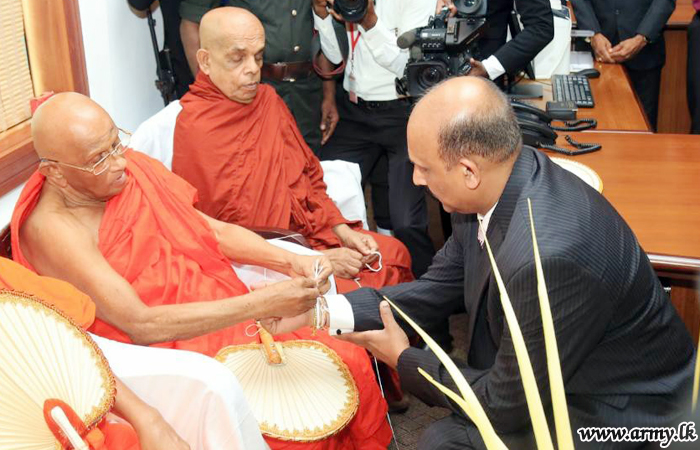A Brief Colonial History Of Ceylon(SriLanka)
Sri Lanka: One Island Two Nations
A Brief Colonial History Of Ceylon(SriLanka)
Sri Lanka: One Island Two Nations
(Full Story)
Search This Blog
Back to 500BC.
==========================
Thiranjala Weerasinghe sj.- One Island Two Nations
?????????????????????????????????????????????????Saturday, January 30, 2021
We did not commit war crimes, says accused Sri Lankan war criminal
29 January 2021
Sri Lanka’s war crimes accused defence secretary has denied all reports of war crimes committed by the armed forces during a 2009 offensive in which he played a leading role, as he revealed he “was in this whole scenario right from the start”.
During the offensive, tens of thousands of Tamil civilians were killed in massacres that saw hospitals shelled, widespread sexual violence and the execution of surrendees. Kamal Gunaratne was commander of the army’s infamous 53 Division during the 2009 massacres, and stands accused of numerous abuses, including sexual violence, summary executions and the disappearance of those who surrendered to the military.
Speaking to Daily News, he slams the Tamil diaspora for speaking of war crimes and genocide, stating “What they have been saying about Sri Lanka since 2009 was that Sri Lankan Forces had committed war crimes or crimes against humanity, which is not true”.
“I am a military officer who was in this whole scenario right from the start… and saw the end of the LTTE and how the Eelam concept was reduced to just an ideology,” he added.
Speaking of “eradicating terrorism” and the “large Tamil diaspora”, Gunaratne claimed “funds they have collected have been directed towards the Eelam ideology in order to buy the politicians of certain countries and bribe very powerful people, especially from European countries to stand against the Government of Sri Lanka”.
“I say this because in certain constituencies in certain countries, including USA and Canada, a member would be elected totally depending on the mandate received from the Tamil community of that constituency,” he continued. “Therefore, they are bound to support the Eelam ideology and as a result, all this pressure is focussed on the Sri Lankan Government.”
Genocide?
The defence secretary went on to deny that genocide had taken place on the island in “recent times,” but alluded to the Uva rebellion of 1818 by the Kandyan Kingdom against the British, as a genocide. “After that there was no genocide in this country,” he said. “No such thing happened in this country.”
“It is just to tarnish the good name of the country and the Government at that time,” Gunaratne continued. “However, it is sad that many of the powerful countries don’t want to accept that we carried out a successful humanitarian operation and they are not willing to accept the outcome.”
“We did it to liberate the people. Using the word ‘genocide’ is wrong. If we engaged in genocide, then we would not have rescued over 300,000 people, they would all have been killed. So the accusation is very unfair.”
He went on to deny accusations of racism and Tamil demands for self-governance by saying, “I too have so many Tamils who are my very good friends and I assure you Tamils in this country are definitely not ill-treated”.

OMP is ‘absurd’
Gunaratne concluded his interview by labelling the Office of Missing Persons (OMP), a Sri Lankan government initiative that was created following several UN resolutions on accountability, “absurd”.
The OMP has been criticised by Tamils for whitewashing the disappearance of their loved ones and as a time-wasting measure for the state which provides no tangible answers or accountability.
Gunaratne though criticised it for even investigating forced disappearances, claiming that “anyone can just come and complain that their son or family member is missing”.
“They are just accepting complaints and those giving evidence are kept secret and they want the members of the Security Forces to be charged, without being given any opportunity for cross-examination as those people are not identified. This is a totally wrong procedure and it does not suit our legal system”
“How can we even issue death certificates when no one knows what has happened to those who are missing. If we issue death certificates, and later that person is found, this whole process will become a joke… The motive of this organization is questionable as they have been going to people’s houses and getting them to come forward and say that their loved ones are missing. How can we trust them and cooperate?
See the full interview here.
Related Articles:
08 December 2019 : Sri Lankan Defence Secretary assumes office of TRC Chairman
20 November 2019 : Another accused war criminal takes office in Sri Lanka


